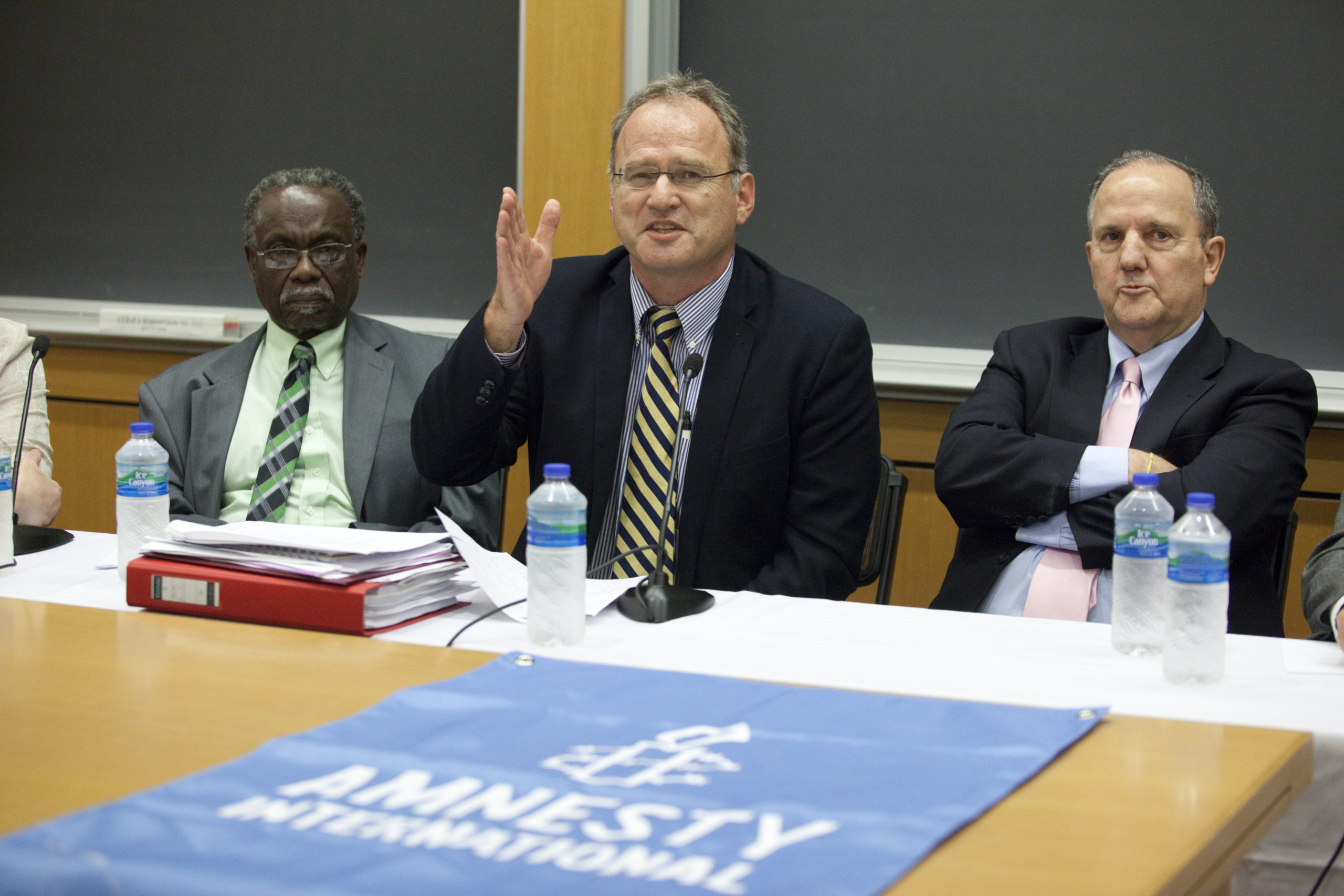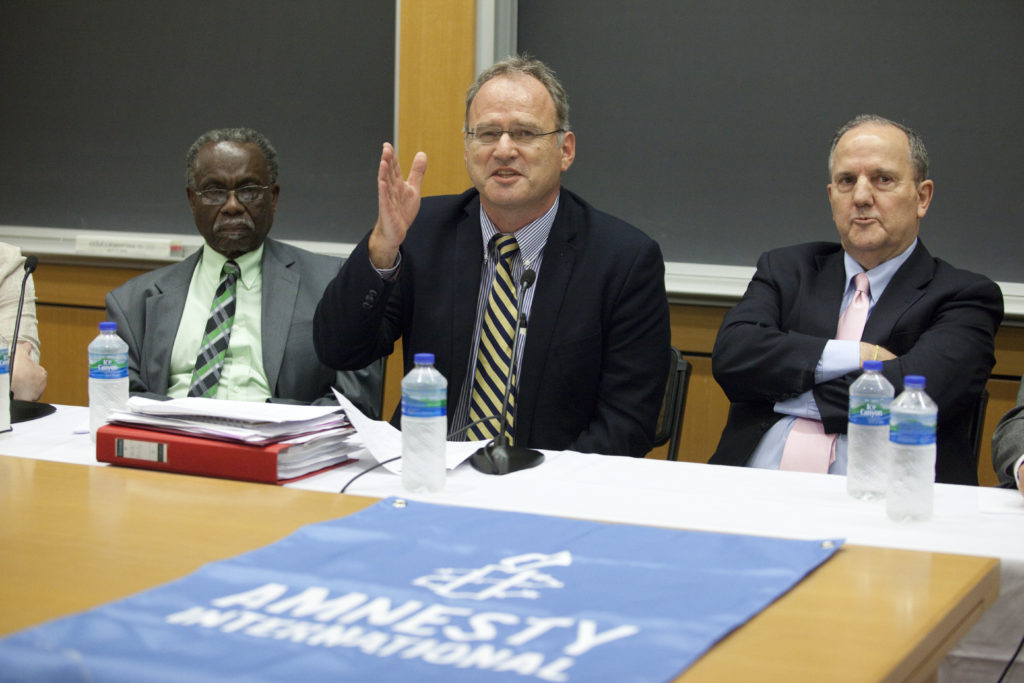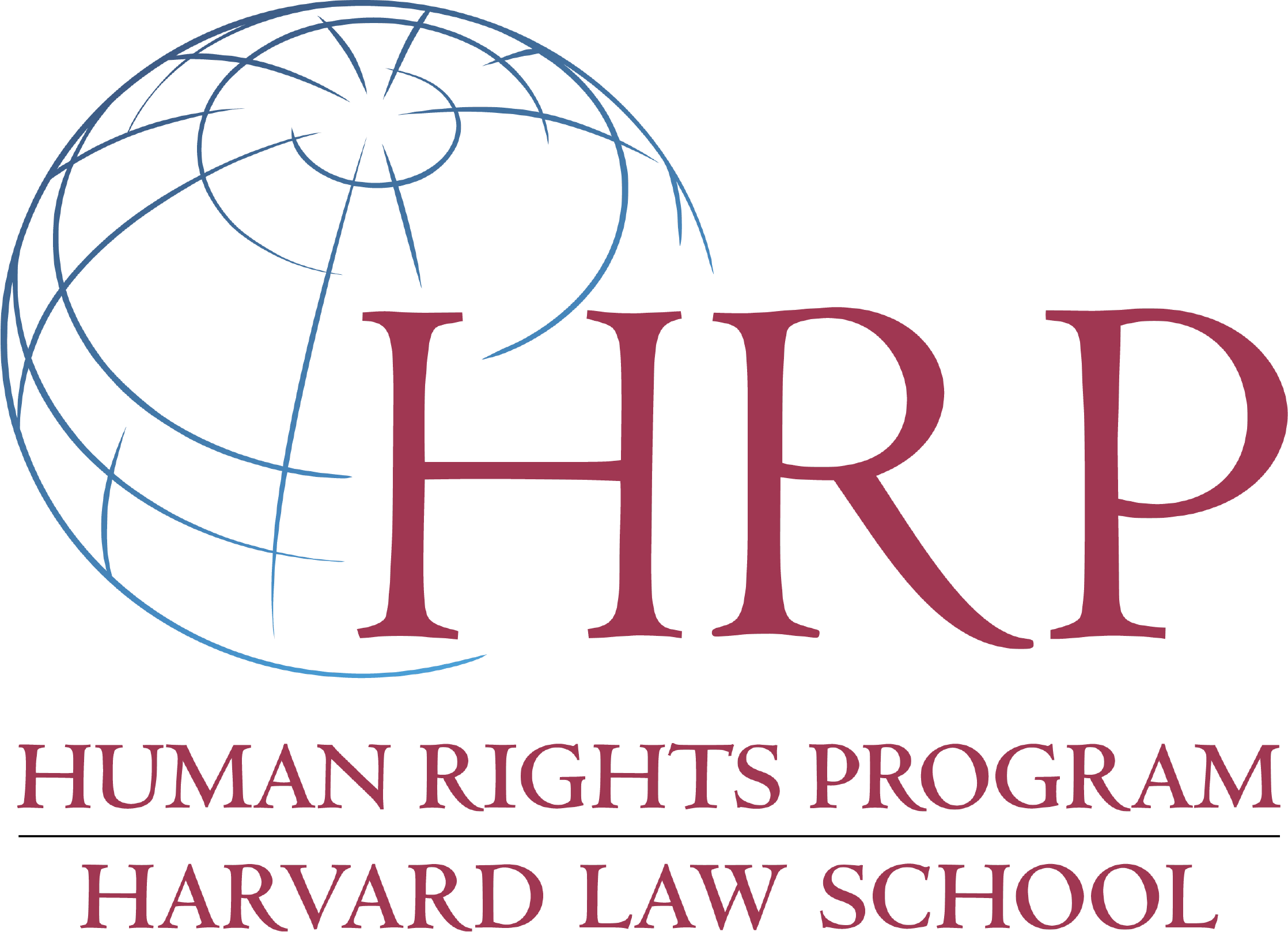
In Memoriam: Christof Heyns
Christof Heyns, a towering figure in the human rights community, passed away on March 28, 2021. Professor Heyns was Director of the Institute for International and Comparative Law in Africa and Professor of Human Rights Law at the University of Pretoria. In 2012, he was one year into his term as United Nations Special Rapporteur on extrajudicial, summary or arbitrary executions, when he came to HRP as a Visiting Fellow. He focused his research on the legal framework concerning the death penalty, the use of force by the police during demonstrations, and armed drones; he contributed immensely to the intellectual life of the university.
Professor Heyns touched many lives — at HLS and beyond. Past and current members of HRP who knew or worked closely with him pay tribute below.

Tess Borden JD’14, International Human Rights Clinic Alum
Christof changed my life. Or perhaps he didn’t change it so much as make it possible: Christof showed me the kind of lawyer I wanted to be and shaped my life through his many lessons. I worked for Christof during my three years at HLS: first as a research assistant while he was at HRP, then as a summer intern with him in Geneva and Pretoria, and finally as a researcher on his Special Rapporteur mandate, accompanying him on a mission to Turkey and Mexico, attending meetings in Florence, Geneva, and New York, drafting documents together late into the night and over early morning coffees. I could not have had a more exhilarating law school experience or a more thoughtful, brilliant, loving mentor.
In this week of heartbreak, people have referred to Christof as a giant and a baobab tree. Absolutely, he was grand – sometimes even larger than life to me. But it was also the great honor of those early years of my career to see Christof as just human – giddy when he held a baby on his lap, excited to talk about the outdoors, books, film, his wonderful wife and children, the beauty of everyday life. I’ll never forget the way Christof showed his humanity in his giant role: the way he listened to survivors who testified before him, thanking them for sharing and trusting him with their stories, affirming their dignity. Although he was a brilliant legal thinker, it was the humans in human rights law that I saw move him. His life’s work seemed to me to be about investing in those human connections: in his students and colleagues, teaching us to believe in ourselves as he believed in us; in the fundamental right to life – and to live with dignity – in his Special Rapporteur work; and in the power of local systems of investigation, accountability, and expertise in his commitment to regional human rights mechanisms. In these connections, his selflessness was beyond compare. I know Christof’s wisdom and example have shaped the way I understand humanity and the law. My heart aches for his family and all his students and communities around the world. Thank you for changing, for making possible, our lives, Christof. We owe you a debt of gratitude – and a deep well of love.
Gerald Neuman, Co-Director, Human Rights Program; J. Sinclair Armstrong Professor of International, Foreign, and Comparative Law, Harvard Law School
Christof Heyns was a very important scholar of human rights in Africa, as well as a leading expert of the UN human rights system. His efforts to document the work of the African regional human rights system, and his critical examination of its effectiveness, were foundational. As a UN special rapporteur, and a very dedicated member of the Human Rights Committee, his deep knowledge and careful legal analysis made major contributions. As the main author of the Committee’s General Comment No. 37 on freedom of assembly, he provided extremely valuable guidance on a crucial right that has been gravely threatened in recent years.
Bonnie Docherty, Associate Director, Armed Conflict and Civilian Protection Initiative; Lecturer in Law, International Human Rights Clinic
While Christof Heyns championed a multitude human rights causes, I knew him best through our common work on “killer robots.” As special rapporteur on extrajudicial killings, Christof sounded an early alarm about the human rights implications of fully autonomous weapons, weapons systems that would select and engage targets without meaningful human control. In 2013, Christof brought his concerns to the United Nations, urging the Human Rights Council to take action against this emerging technology. Three years later, he and the special rapporteur on free expression explicitly called for a ban on killer robots. Through publications, presentations, and persistence, Christof compelled countries to recognize the dangers of delegating life-and-death decisions to machines and prompted them to initiate deliberations on fully autonomous weapons in a major disarmament forum.
Christof was not only a brilliant and effective lawyer but also a kind, generous, and self-effacing individual. He treated students and colleagues with respect and compassion, and he went out of his way to learn from others. I remember Christof peppering me with questions about the Clinic’s work on fully autonomous weapons when he was a Human Rights Program fellow in 2012; our first conversation over lunch at the Hark led to many more. Christof also worked closely with civil society, including the Campaign to Stop Killer Robots, a global coalition with which the Clinic partners. Campaign members have exchanged memories and messages of mourning since news of his death broke. Christof was a perfect advocate for a ban on killer robots because he exuded the humanity he was fighting to preserve.
Beatrice Lindstrom, Lecturer in Law, International Human Rights Clinic; Supervising Attorney, HLS Advocates for Human Rights
For the past two years, Christof Heyns served as a valued partner to HLS Advocates for Human Rights. Through this collaboration, a team of students had the opportunity to work with Christof to contribute research to his global study into the impact of human rights treaties. The groundbreaking study sought to gather evidence of whether and how human rights treaties have influenced domestic laws and translated into traceable impact on the ground in countries around the world. Christof’s vision for the project was grand, but he never hesitated to take the time to engage with students on the details of their research, methodologies and challenges. Christof modeled for all of us how the field of human rights is best served when strong vision is combined with deep dedication, humility, and compassion. His passing is a tremendous loss for the human rights community, and he will be dearly missed by all of us who had a chance to work with him.
